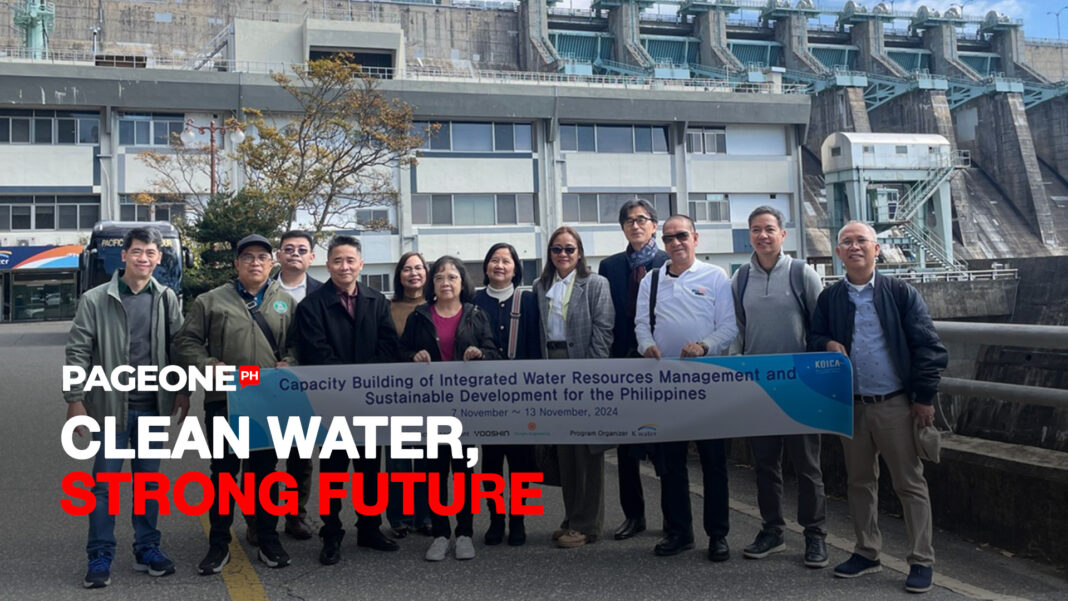The Philippines, ranked as the world’s most disaster-prone country for 16 consecutive years by the World Risk Index, faces an average of 20 typhoons annually, along with frequent floods and droughts that affect millions.
To build resilience against these threats, the Korea International Cooperation Agency (KOICA) has been implementing the ‘Capacity Building for Integrated Water Resources Management and Sustainable Development Project’ since 2021. This initiative addresses the urgent need for an integrated approach to water governance, guided by key national strategies such as the Philippine Development Plan (PDP 2023–2028), National Climate Change Action Plan (NCCAP 2011–2028), and Philippine Water Supply and Sanitation Master Plan (PWSSMP).
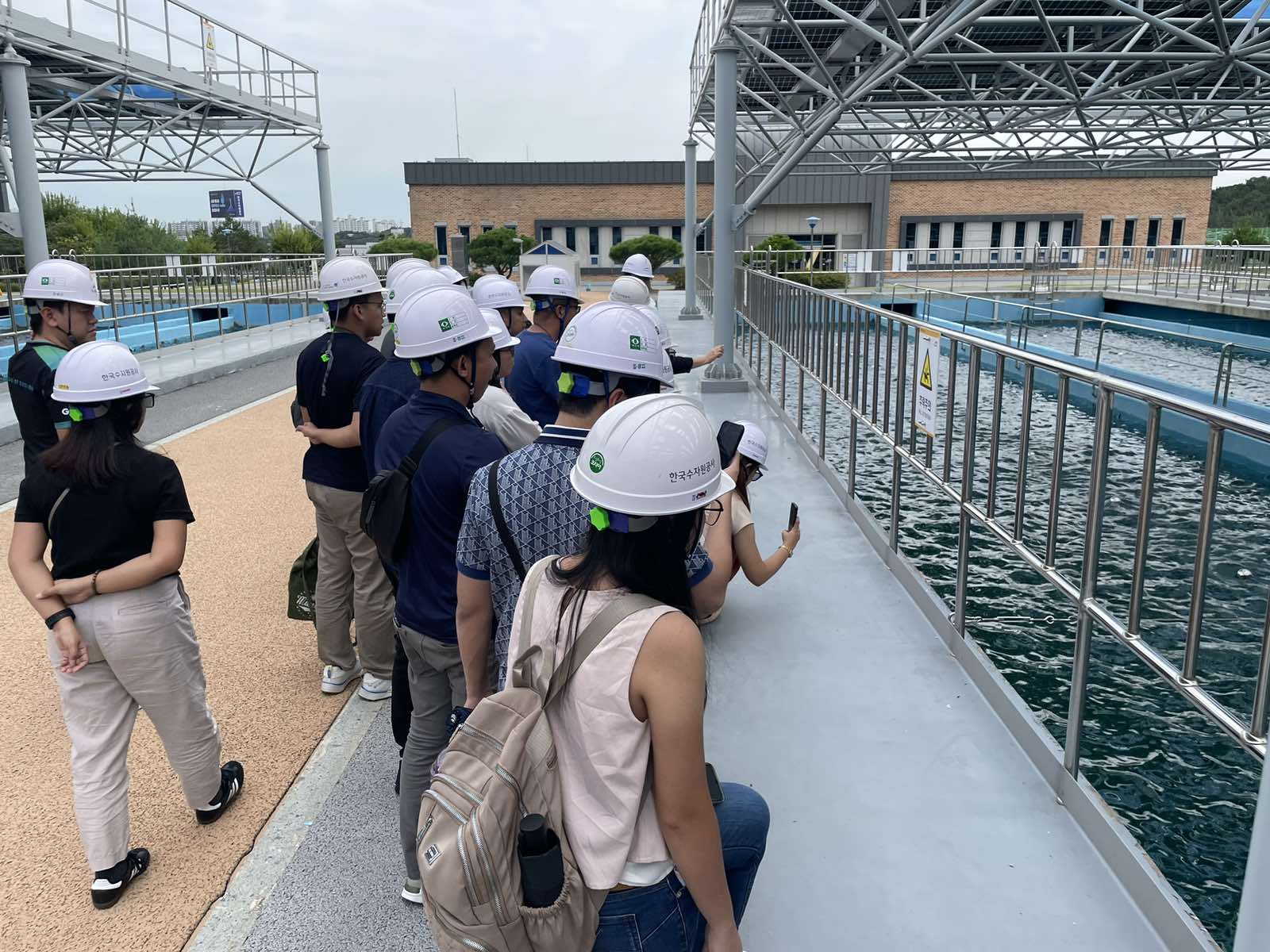
The USD 2.5 million project contributed to the delivery of water supply, sanitation, irrigation, and flood control services under the Integrated Water Resource Management (IWRM) framework by enhancing the technical and institutional capacities of Philippine water agencies. Implemented by Yooshin Engineering Corporation and Dongbu Engineering, the project began with a comprehensive assessment of the Philippines’ water landscape. This foundation enabled the identification of key development initiatives across water policy, water resources management, flood control, irrigation, and water supply and sanitation, culminating in a mid- to long-term roadmap for bilateral water cooperation.
Through a series of training programs in Korea and local workshops, participating officials gained practical insights into Korea’s integrated water management systems and policy frameworks. In partnership with the Department of Economy, Planning and Development (DEPDev), KOICA extended support to key Philippine agencies, including the Department of Environment and Natural Resources – Water Resources Management Office (DENR-WRMO), Department of Public Works and Highways (DPWH), National Water Resources Board (NWRB), National Irrigation Administration (NIA), and Local Water Utilities Administration (LWUA), to strengthen their capacities in sustainable and integrated water resource management.
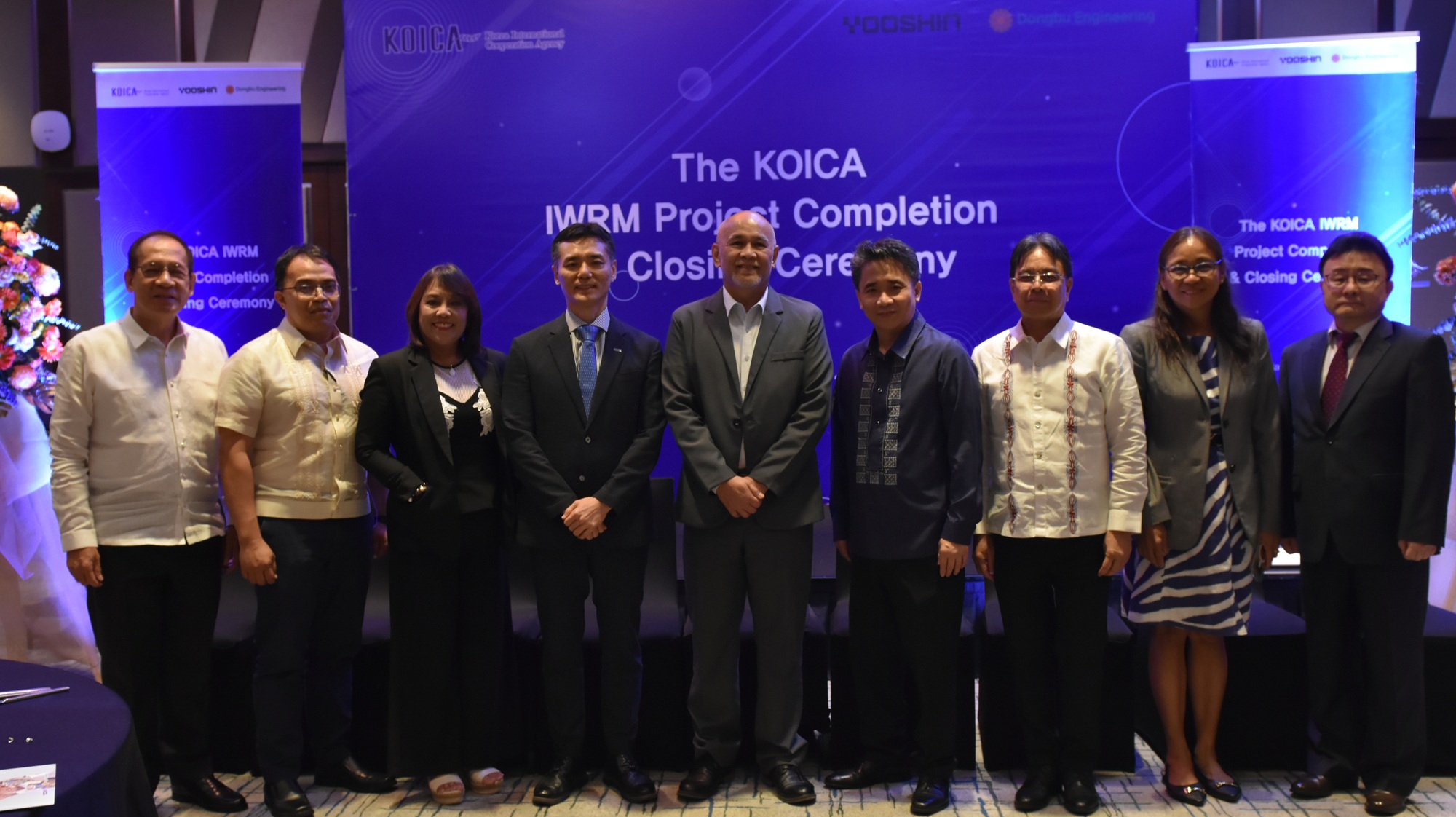
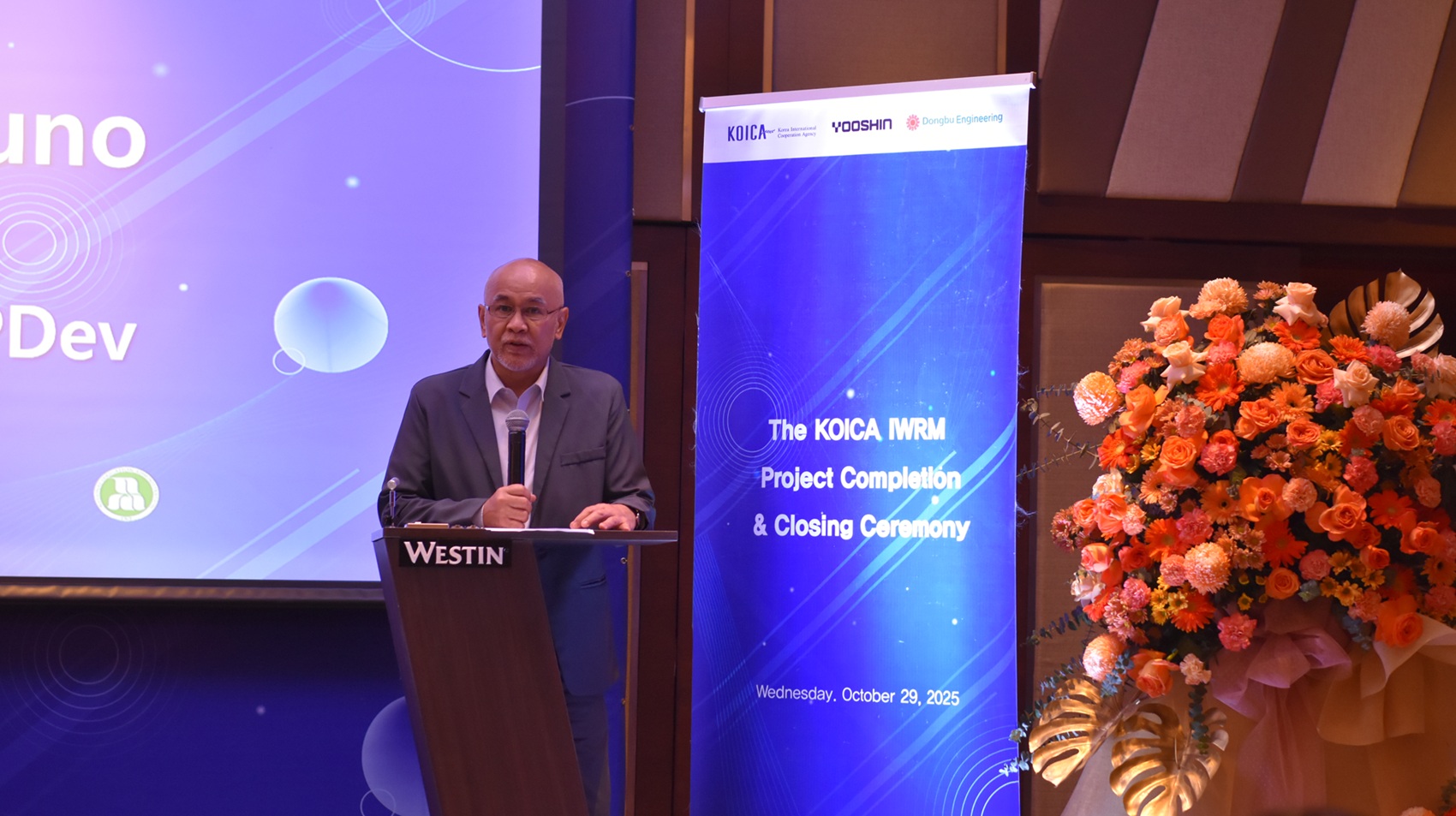
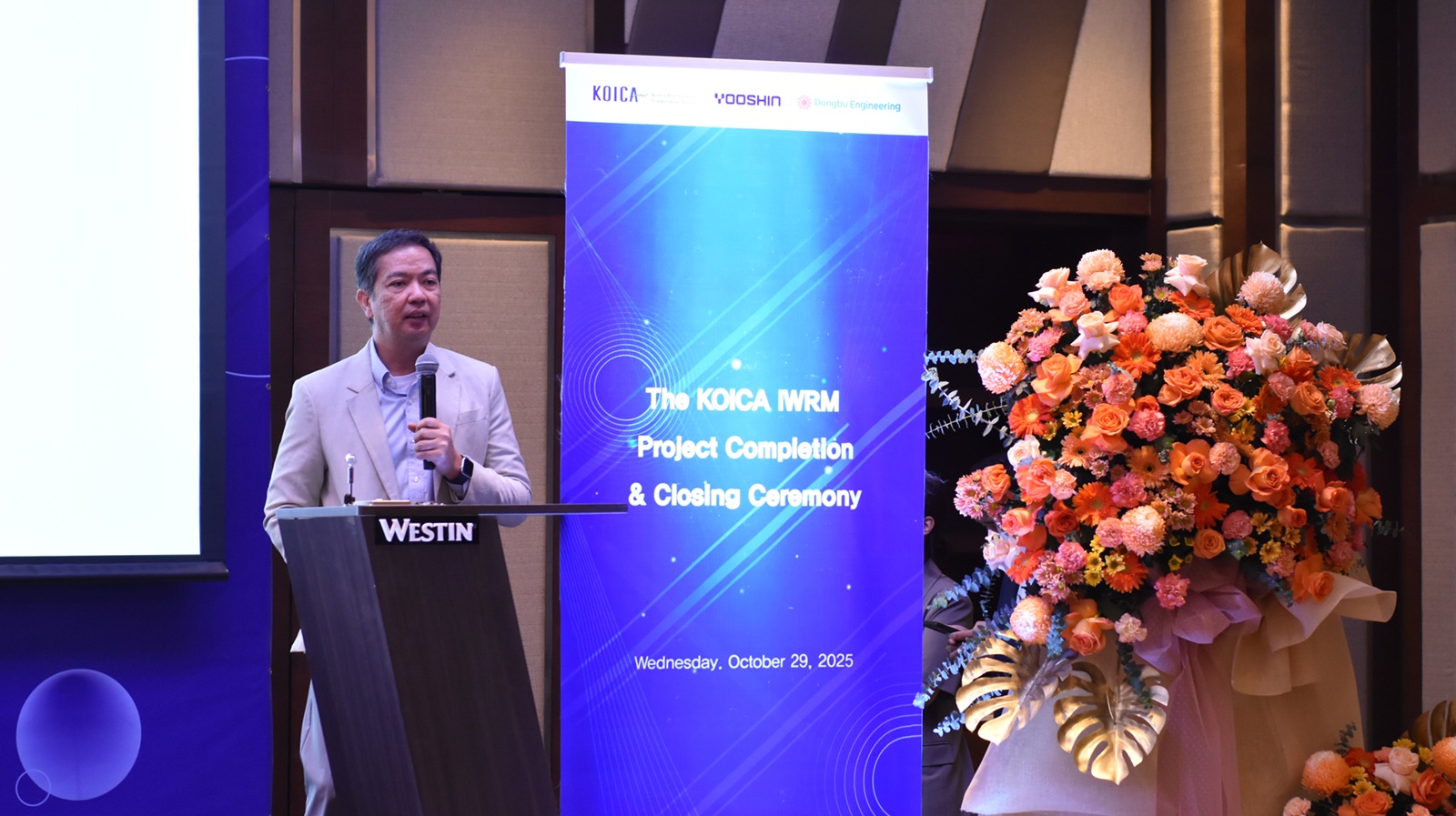
At the Project Completion and Closing Ceremony held recently at The Westin Manila, senior officials and technical representatives from the six partner agencies presented their key achievements, institutional priorities, and proposed follow-up initiatives to sustain the project’s momentum. The discussions underscored the importance of cross-agency collaboration to ensure effective water governance.
Country Director JUNG Youngsun of KOICA Philippines emphasized the long-term vision of the initiative, saying that “We hope that the governance framework established through this project will serve as a foundation for the Philippines’ integrated water management. Beyond capacity building, this project has laid the institutional groundwork for sustainable implementation.”
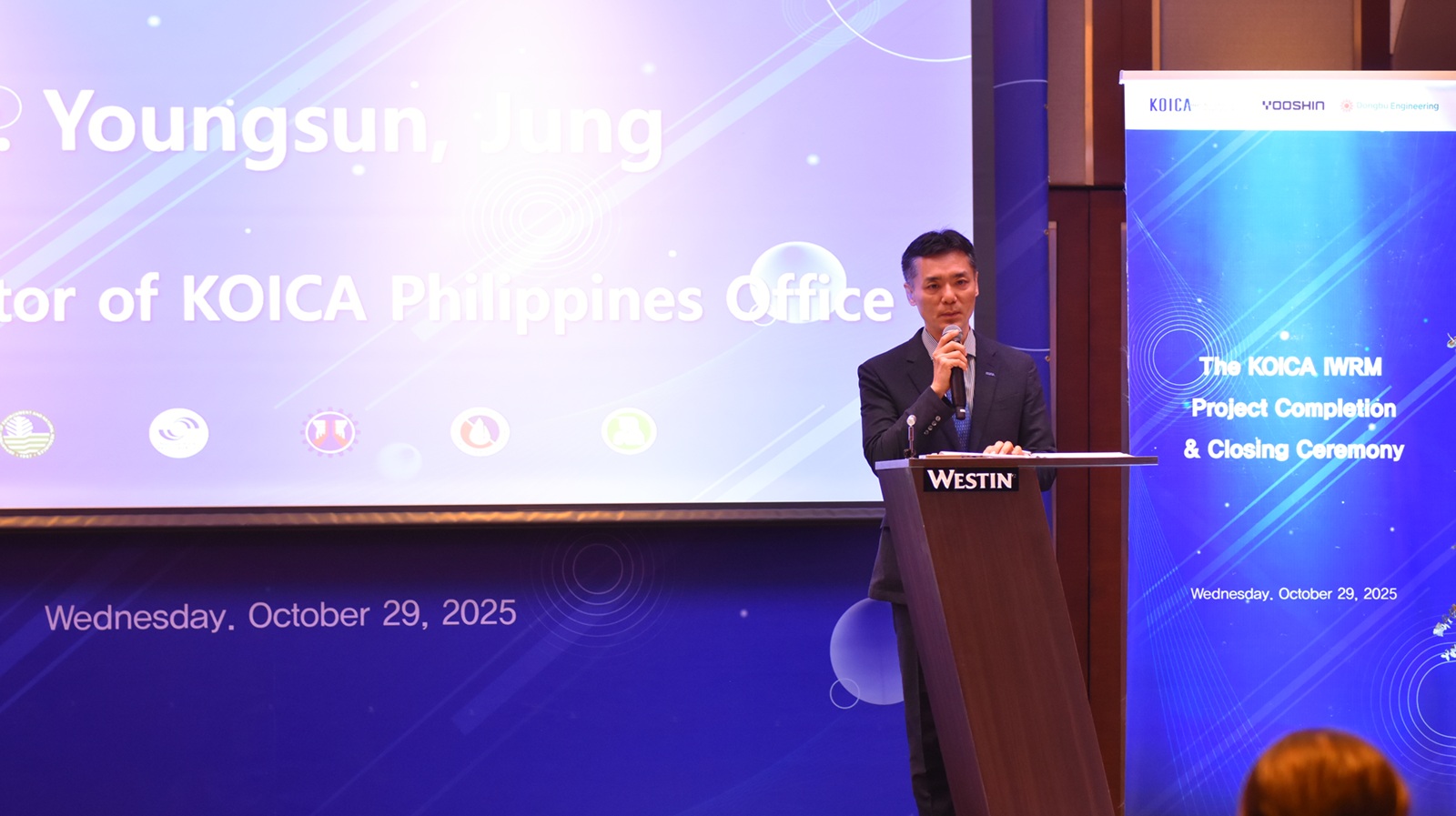
By strengthening policy, institutional, and human capacities, the project directly advanced SDG 6 (Clean Water and Sanitation) and SDG 13 (Climate Action). Furthermore, it is expected to support the Philippine government’s sustainable implementation of integrated water resources management through the Mid- to Long-Term Roadmap, serving as a foundation of unified water governance and improved transparency and efficiency in water resource management.


